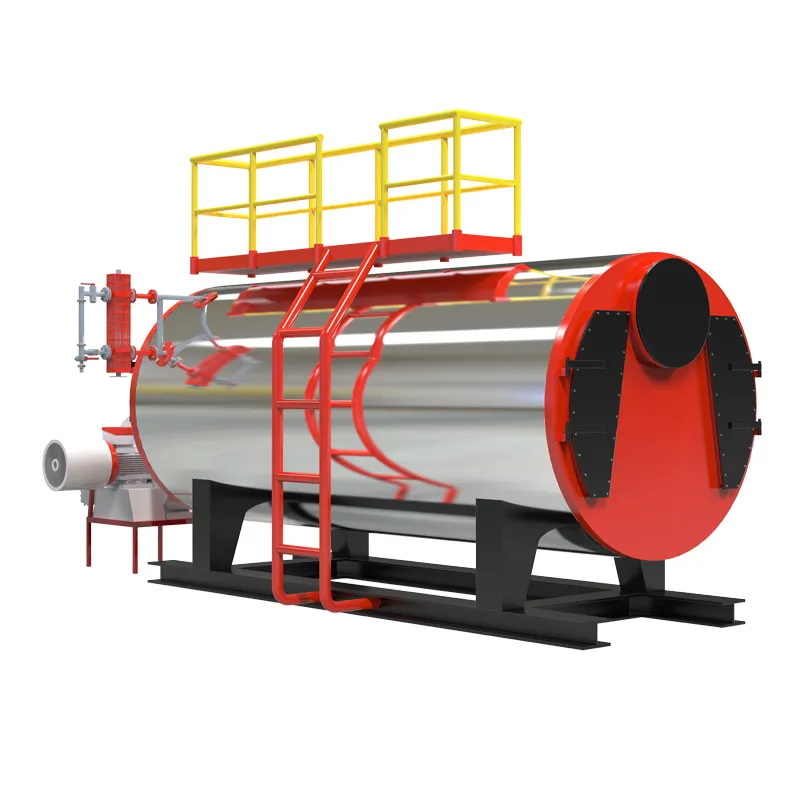
Oct . 18, 2024 19:37 Back to list
Hydrogen-Powered Steam Boilers for Sustainable Energy Solutions in the Future
The Efficient Future of Hydrogen Steam Boilers
As the world seeks innovative solutions to combat climate change and reduce greenhouse gas emissions, hydrogen has emerged as a promising energy source. Among the various applications of hydrogen, hydrogen steam boilers are gaining attention for their potential to revolutionize industrial processes and heating systems by providing a cleaner alternative to traditional fossil fuels.
Hydrogen steam boilers operate by burning hydrogen to produce steam, which can then be used for various industrial processes or heating applications. The primary advantage of using hydrogen is that its combustion produces only water vapor as a byproduct, significantly reducing the carbon footprint compared to conventional coal, oil, or natural gas boilers. This characteristic positions hydrogen steam boilers as a crucial technology in the shift towards sustainable energy systems.
One of the significant challenges in adopting hydrogen steam boilers is the production and storage of hydrogen. Currently, hydrogen can be produced through various methods, including natural gas reforming, electrolysis, and biomass gasification. The latter two methods are particularly appealing for sustainable hydrogen production since they can exploit renewable energy sources such as wind, solar, or hydroelectric power. As technology advances, the efficiency of these methods is improving, and the cost of green hydrogen production is expected to decrease, making hydrogen an increasingly viable option for steam generation.
hydrogen steam boiler

In addition to their environmental benefits, hydrogen steam boilers can also enhance energy efficiency in industrial settings. Many industries, including food processing, chemical manufacturing, and pharmaceuticals, require steam for heating and sterilization purposes. By transitioning to hydrogen steam boilers, these sectors can reduce their reliance on fossil fuels and mitigate their environmental impact. Furthermore, hydrogen boilers can be designed to operate in conjunction with other renewable energy technologies, contributing to a more integrated and sustainable energy system.
The transition to hydrogen as a fuel source does not come without challenges. Infrastructure development for hydrogen production, distribution, and storage is crucial to supporting the widespread implementation of hydrogen steam boilers. Governments and private sector stakeholders must invest in building the necessary infrastructure, including pipelines and hydrogen refueling stations, to facilitate this transition.
Policy support is also essential in promoting the adoption of hydrogen steam boilers. Governments can implement incentives such as grants, tax breaks, and subsidies to encourage industries to invest in hydrogen technology. Furthermore, establishing regulations that promote cleaner energy sources will drive industries towards adopting hydrogen-powered solutions.
In conclusion, hydrogen steam boilers represent a significant step forward in creating a more sustainable energy landscape. While challenges remain in terms of hydrogen production, infrastructure, and policy support, the potential benefits of reduced greenhouse gas emissions and improved energy efficiency make this technology a focal point in the discussions around energy transition. As the push for cleaner, greener energy sources continues, hydrogen steam boilers could play a pivotal role in transforming industries and contributing to a sustainable future.
-
High-Efficiency Commercial Oil Fired Steam Boiler for Industry
NewsJul.30,2025
-
High-Efficiency Biomass Fired Thermal Oil Boiler Solutions
NewsJul.30,2025
-
High Efficiency Gas Fired Thermal Oil Boiler for Industrial Heating
NewsJul.29,2025
-
High-Efficiency Gas Fired Hot Water Boiler for Sale – Reliable & Affordable
NewsJul.29,2025
-
High Efficiency Biomass Fired Hot Water Boiler for Industrial and Commercial Use
NewsJul.29,2025
-
High-Efficiency Biomass Fired Hot Water Boiler for Industrial Use
NewsJul.28,2025
Related PRODUCTS






















